BEHIND THE SCENES – Statement from the director, Robert Eggers: I never wanted to make a Viking movie. I thought Vikings were violent, hulking brutes with nothing of interest. My wife, on the other hand, had been fond of the Icelandic Sagas, the esteemed medieval stories of Viking lore, and she knew that I would love them. But even at her insistence, I never opened one of these great books. When we went to Iceland in 2015, the epic and overwhelming landscapes inspired me completely. I immediately imagined solitary tenth century figures on horseback, dwarfed by supernaturally colored mountains, glaciers, and infinite skies.
There was something about the elements, and the elemental that cried out from the landscapes. Then I got thinking about Vikings, and learning what really had existed in the first decades of tenth century Scandinavia and at the same time being alert to the reinterpretations and inaccurate elements that had been projected onto the Viking culture in the millennia that followed. I found a full and complex civilization of beautiful art, cultural and religious fusion, advanced technology, elaborate customs, and codes of honor and justice. But it was also a culture of extreme violence and subjugation, and one where horrific cycles of revenge knew no end. Humankind, it seems, never changes. Maybe that’s why I am drawn to the past. It is a dark and distant mirror.
After a fated lunch with Alexander Skarsgård, the idea of making a Viking film became real. I knew (forgive the hubris) that I needed to try and make the Viking movie. The definitive Viking movie. With the help of the brilliant Icelandic novelist and poet, Sjón, we would embark on making the most historically accurate and grounded Viking film of all time. We would be working with archeologists and historians, trying to recreate the minutiae of the physical world, while also attempting to capture, without judgment, the inner world of the Viking mind: their beliefs, mythology, and ritual life. That would mean the supernatural would be as realistic as the ordinary in this film – for so it was for them. Recent television, film, and video game representations of Viking mythology and Old Norse culture are romanticized and made to look flashy and cool. The public perception of a Viking today looks more like a science-fiction-rock-star than an Old Norse priestess, farmer, warrior, or queen. With our fanatical research we would attempt to redefine this image with something as grounded and elemental as the landscapes that were so inspiring.
Viking Age visual arts, like their poetry, are rich, intricate, and complex – but unlike the poetry, it is abstract and not atmospheric. So visually, it would be landscapes and the elements – the wind, mud, rain, snow, dirt, ice, ash, and fire – that would create the atmosphere of this film – that, and the sounds of nature, accompanied by the sounds of Viking Age instruments. The camerawork endeavors to be timeless, with graphic, organized, staging – stark and Nordic. And this ever-moving camera is meant to be hypnotic and transportive – the long takes bringing you into the world to experience this ancient time unfold before your eyes. These long, dense takes that simultaneously endeavor to tell the story, while immersing the audience further into the culture, took immense discipline, and total collaboration. Everyone involved, from the actors, the camera operators, stunt people, the costume breakdown artists, jewelers, armorers, prop-makers, animal handlers, birch horn and bone flute players – even studio executives – were all concentrated on the goal to make this one whole cohesive piece, based on history – and to make it together – all of us pushing each other to do our best work beyond our abilities. In the Old Norse creation story, the world and its elements are made by the body parts of a slain giant. We were all these elements: the blood, bones, teeth, and brains, that together – and only together – made up the imperfect slain giant that is: The Northman.
SYNOPSIS
Young Prince Amleth is on the cusp of becoming a man when his father is brutally murdered by his uncle, who kidnaps the boy’s mother. Fleeing his island kingdom by boat, the child vows revenge. Two decades later, Amleth is a Viking berserker raiding Slavic villages, where a seeress reminds him of his vow: avenge his father, save his mother, kill his uncle. Traveling on a slave ship to Iceland, Amleth infiltrates his uncle’s farm with the help of Olga, an enslaved Slavic woman — and sets out to honor his vow. From visionary writer-director Robert Eggers (The Witch, The Lighthouse) comes an immersive Viking epic like no other featuring an ensemble cast including Alexander Skarsgård, Nicole Kidman, Claes Bang, Anya Taylor-Joy, Ethan Hawke, Willem Dafoe and Björk.
ABOUT THE PRODUCTION
From Robert Eggers comes a meticulously crafted and epic Viking revenge saga starring Alexander Skarsgård as Prince Amleth, a 10th-century Norseman who flees his homeland after witnessing a horrific act, only to return years later as a hardened berserker determined to avenge the savagery inflicted upon his family.
Featuring an ensemble cast, including Nicole Kidman, Anya Taylor-Joy, Ethan Hawke, Claes Bang, Willem Dafoe and Björk, The Northman re-imagines the Norse myths, Icelandic sagas and Viking legends from a distant era through Eggers’ signature focus on craftsmanship and authentic detail.
“This is a big, muscular adventure, grander in scale than his previous films,” says Willem Dafoe, who co-starred in The Lighthouse, and plays the court jester Heimir the Fool in The Northman. “But Robert approaches it with the same kind of detail, creating sets, props and even shots that are made with such precision and care that the pretending on the part of the audience becomes effortless. Inside each shot of this movie there is a rhythm and a story and a dynamic that’s beautiful on its own. Everything’s there on screen; you don’t simply enter Eggers’ worlds — you get folded into them.”
Recalling familiar stories ranging from Hamlet and Beowulf to The Lion King, The Northman takes its roots from the classic and timeless story of a young man scorned and adrift who plots revenge as he tries to make sense of his place in the universe without a role model, mentor, mother or father.
“The most famous story of family revenge in literature is Hamlet,” says producer and star Alexander Skarsgård, who spent ten years developing a Viking film that eventually became The Northman with producer Lars Knudsen (The Witch, Hereditary) before it started production in 2020. “Hamlet’s key influence and predecessor is the Scandinavian legend of Amleth and that’s essentially the movie we’ve made, infusing the flavors of the old Norse myths with the dry, laconic language of the Icelandic sagas and retaining the supernatural elements from the Amleth legend.”
Eggers co-wrote the film’s screenplay with Icelandic poet, novelist, lyricist and screenwriter Sjón (Lamb, Dancer in the Dark), using his inimitable emphasis on atmosphere and design to elevate the Viking epic to bold new heights. “The intention with The Witch was to revitalize that archetypal figure after Hocus Pocus and countless Halloween decorations made witches no longer scary,” says Eggers. “In the same way that The Witch asked its audience: You think you know what a witch is? Well, think again. We’re trying to explore and articulate what Vikings were about in a similar way.”
THE TIME OF THE NORTHMAN
For The Northman, Eggers and Sjón blended the Amleth legend with elements from the Icelandic sagas and Norse myths to create a wholly original story that plays out around the turn of the 10th century. Written in Old Icelandic (a dialect of Old Norse) and taking place in the ninth, tenth, and eleventh centuries, the Icelandic family sagas are prose narratives based on historical events centering primarily on local life; by contrast, the legendary sagas, from which the Amleth story originated, used elements of Medieval romance to spin more supernatural and adventure-derived stories.
“The Legendary sagas are still mostly set in the Viking Age but they are much more fanciful than the (more domestic-oriented) family sagas in that they feature monsters, dragons and heroes rescuing princesses,” says Neil Price, the British archaeology professor and author specializing in magic, sorcery and religion in the Viking Age, who was also a consultant on The Northman. “The Amleth story emerged from the legendary end of things as opposed to the family sagas, and the screenwriters understood the difference. One of the first things that Robert said to me was that I should think of this as a movie based on a Legendary saga — the fantasy element was important to him. As he did in his other movies, the magical and visionary aspects of the story can be interpreted by the viewer as actually happening, or as states of mind.”
The screenwriters divided the story into three central locations, using the dawn of the tenth century as an historical anchor point. The movie opens in the middle of the Viking Age, after the Scandinavians have expanded across the North Sea and begin to settle in the British Isles and across the North Atlantic. During the story’s prologue, set on the fictitious island kingdom of Hrafnsey, located somewhere around the Orkney and Shetland Islands, Amleth is a young boy who is being groomed to inherit the throne of his father.
Several decades later, Amleth finds himself in a radically different environment after he flees Hrafnsey for the Land of the Rus following an act of shocking violence. Now a seasoned berserker warrior, he is part of a Viking raiding party working the rivers of Eastern Europe, where the eastern Vikings traded, plundered and settled during the tenth century.
Disguised on a slave ship bound for Iceland in 914, Amleth reaches shore in a territory that has only been settled for a few decades. A unique social experiment as a land without kings, Iceland was created as a republic for free farmers — a place where someone could start a new life, or in the case of Amleth’s uncle Fjölnir, flee from an old one.
“This is by far the most accurate depiction of the Viking Age I’ve ever seen,” says Price. “I was on set during pre-production when they were in the process of bringing all of this to life and I found it overwhelming — I’ve never seen this level of attention to detail in an historical film before.”
A VIKING EPIC TAKES SHAPE
Skarsgård began developing a Viking movie more than a decade ago. Indeed, the idea for the project dates back to the actor-producer’s childhood, when he first became enchanted by Viking myth and lore. Born in Stockholm, Sweden, Skarsgård grew up surrounded by the heritage of the Vikings.
Many years later, after catapulting to fame playing the vampire Eric Northman on True Blood, beginning in 2008, Skarsgård began envisioning the Viking epic of his dreams, something he would both star in and produce. A development team worked on the project for a while, but it stalled in the writing stage.
“We had a hard time figuring out where to enter the world because the Viking era went on for over a century, and they traveled all over the world,” says Skarsgård. “One thing that remained constant from the beginning was this specific tone — we wanted the story to reflect the laconic feel of the Icelandic sagas.”
A few years later, Skarsgård and producer Lars Knudsen, from Denmark, started looking for a filmmaker with a specific vision who understood the unique tone of the Icelandic sagas and who was familiar with the culture and history of the Vikings. Knudsen, who had produced first-time filmmaker Robert Eggers’ art-house horror sensation The Witch in 2013, brought up Eggers to Skarsgård.
“Eggers’ attention to detail was unlike any I had ever seen,” says Skarsgård.
Six months later, Skarsgård found himself meeting with Eggers in New York. They ended up spending an entire afternoon talking about the Viking lore.
“Rob will say otherwise but he already knew a great deal about Vikings, including their culture, history and literature,” recalls Skarsgård. “He was fired up about the project and I immediately called Lars and suggested Rob direct our movie. He came on board, and we couldn’t have been more excited.”
Unlike Skarsgård, Eggers had not grown up enchanted with Viking culture. He preferred medieval knights and was put off by the macho stereotype of Vikings and knew very little about the Icelandic sagas. After The Witch came out, Eggers and his wife traveled to Iceland. “As soon as we landed in Reykjavik, and saw the Icelandic landscape, which felt out of time, I wanted to make a movie there,” says Eggers.
After visiting the Saga Museum in Iceland, they met the novelist and screenwriter Sjón (Red Milk, CoDex 1962: A Trilogy) at a dinner party. “I asked him what he wrote about and he said his last novel was about witchcraft in 17th century Iceland, so we got on like a house on fire,” says Eggers, whose debut feature was set in a similar milieu. “When I returned to the States I read his books, and found myself completely enamored of the way that he’s immersed the past in his work.”
Eggers sent Skarsgård and Knudsen the mythic prologue to Sjón’s 2008 witchcraft novel From the Mouth of the Whale. “I just felt from the prologue alone that he was the perfect person to write this Viking project with me,” says Eggers. “Alexander and Lars agreed, and Sjón came aboard as our co-writer.”
Eggers returned to Iceland in 2018 to begin writing The Northman with Sjón, focusing on the Icelandic Sagas, and thinking about the insular culture and landscape of Iceland as a location for the movie. “Having an Icelander, especially someone as brilliant and magical as Sjón to write this with me, made it possible to make this story as authentic as I felt it needed to be,” says Eggers. “Later on, I found myself laughing out loud on set thinking about the things we cooked up in our socks in his kitchen as I watched the story come to life.”
New Regency produced and co-financed THE LIGHTHOUSE, and at the film’s 2019 premiere at the Cannes Film Festival, Eggers told New Regency Chairman and CEO Yariv Milchan, President of Motion Pictures and Television Michael Schaefer, and VP Production Sam Hanson about the project. New Regency came on board immediately, developing the script further and beginning to cast. New Regency then brought on Producer Mark Huffam – a longtime collaborator of Michael Schaefer on several Ridley Scott films. Huffam began putting together a production plan to shoot the film in Belfast, Northern Ireland where he is based.
As they worked towards the shooting script, Eggers brought in three experts to provide feedback on the story, including Price, the archaeology professor and author of Children of Ash and Elm: A History of the Vikings, a definitive account of the Viking Age; Terry Gunnell, Professor of Folkloristics at the University of Iceland; and the historian Jóhanna Katrín Fridriksðóttir, the author of Valkyrie: The Women of the Viking World and an authority on Viking sagas and poetry. “These three consultants were our mega-heroes but we also worked with people in the experimental archaeology re-enactment communities once we got into production, to ensure we were telling our story as authentically as possible,” says Eggers.
ABOUT THE CAST
ALEXANDER SKARSGÅRD (Amleth) is a Golden Globe, Emmy, and SAG winner who maintains a fearless pursuit of challenging roles, evolving with each new project, and is fast becoming one of Hollywood’s most in-demand actors.
In 2017 Skarsgård won the Emmy, Golden Globe, Critics Choice and Screen Actors Guild Awards for his haunting portrayal of Perry on HBO’S Emmy-winning mini-series Big Little Lies, starring opposite Nicole Kidman and Reese Witherspoon.
Skarsgård starred in AMC’s limited series The Little Drummer Girl alongside Michael Shannon and Florence Pugh. He also stars opposite Jeffrey Wright in Jeremy Saulnier’s Hold the Dark for Netflix.
Skarsgård recently starred opposite Keira Knightley and Jason Clarke in the period drama The Aftermath for Fox Searchlight; The Hummingbird Project, opposite Jesse Eisenberg and Salma Hayek; The Long Shot, opposite Charlize Theron and Seth Rogan, for Lionsgate; and A24’s The Kill Team, a dramatic retelling of Dan Krauss’ own award-winning war documentary; and in The Stand for CBS All Access opposite James Marsden and Odessa Young, based on Stephen King’s novel.
Alex most recently stars in Adam Wingards’ Godzilla Vs Kong for Legendary, which was released on HBOMax on March 31st, 2021.
Recent credits include Warner Bros’ The Legend Of Tarzan, directed by David Yates; Duncan Jones’ Mute, opposite Paul Rudd; War On Everyone, opposite Michael Pena; the critically acclaimed Sundance hit Diary of a Teenage Girl, alongside Kristen Wiig and Bel Powley; Lars Von Trier’s Melancholia, opposite Kirstin Dunst; What Maisie Knew, opposite Julianne Moore; Hidden, opposite Andrea Riseborough; Disconnect, opposite Jason Bateman; The Giver, opposite Jeff Bridges and Meryl Streep; The East, opposite Brit Marling and Ellen Page; and Universal’s Battleship, opposite Taylor Kitsch and Rihanna.
Skarsgård’s break-through performance was in the critically acclaimed series HBO series Generation Kill. He later rose to fame as one of the leads in the popular HBO series True Blood, which finished its successful seven season run in 2014.
ANYA TAYLOR-JOY (Olga) burst onto the scene with her performance in A24’s The Witch, which won her rave reviews when it premiered at the 2015 Sundance Film Festival. In his debut feature, writer/director Robert Eggers tells the story of a pilgrim family that is besieged by a supernatural force. She went on to win the Breakthrough Actor Award at The Gotham Awards and Best Female Newcomer Award at The Empires for her performance.
Taylor-Joy most recently captivated audiences globally in Netflix’s critically acclaimed series, The Queen’s Gambit. Based on Walter Tevis’s 1983 novel of the same name, the show is Netflix’s biggest limited scripted series to date and was streamed by a record-setting 62 million households in its first 28 days. For her portrayal of Beth Harmon, she won the Golden Globe and Critics’ Choice Awards, and was nominated for a SAG Award.
Taylor-Joy recently starred in Edgar Wright’s psychological thriller Last Night in Soho, which was released last October by Focus Features.
Taylor-Joy will play the title role in Furiosa, a spinoff feature of George Miller’s multi-Oscar winning blockbuster Mad Max: Fury Road, which is set to premiere in June 2023.
Her extensive filmography includes Autumn de Wilde’s Emma, for which she was nominated for a Golden Globe; Split and Glass, the second and final installments in M. Night Shyamalan’s Unbreakable trilogy; Focus Features’ critically acclaimed Thoroughbreds; the animated musical adventure comedy film Playmobil: The Movie, for StudioCanal; Universal’s Marrowbone; FOX’s Morgan; Marvel’s The New Mutants; and Amazon’s Radioactive.
On television, Taylor-Joy starred in the BBC/PBS Masterpiece miniseries The Miniaturist; voiced the character of Brea in Netflix’s critically acclaimed fantasy series The Dark Crystal; and starred in the fifth season of the gangster period epic Peaky Blinders.
ABOUT THE FILMMAKER
ROBERT EGGERS (Director and Co-Writer) is a Brooklyn-based writer and director. Originally from New Hampshire, Eggers started out directing and designing experimental and classical theatre in New York City. He eventually transitioned to film, directing several short films and working extensively as a designer for film, television, print, theater and dance.
The Witch, his feature-film debut as a writer and director, won the Directing Award in the US Dramatic category at the 2015 Sundance Film Festival, where it premiered to critical acclaim. It also garnered two Independent Spirit Award wins for Best First Feature and Best First Screenplay.
Eggers’ next film, The Lighthouse, opened in late 2019, having won the Cannes Film Festival critics’ award for best first or second feature in Directors’ Fortnight and Critics Week. It received Oscar and BAFTA nominations for Best Cinematography.
Eggers is currently developing several projects, including a reimagining of F.W. Murnau’s Nosferatu.
Source: UIP

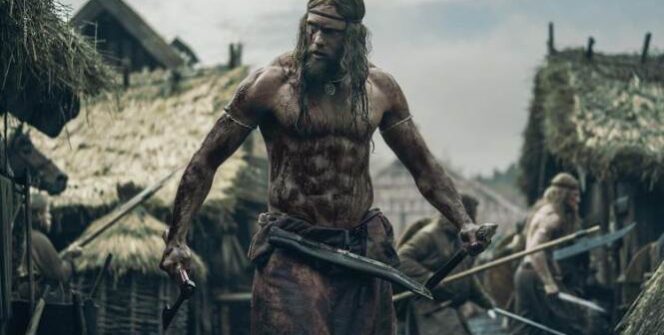
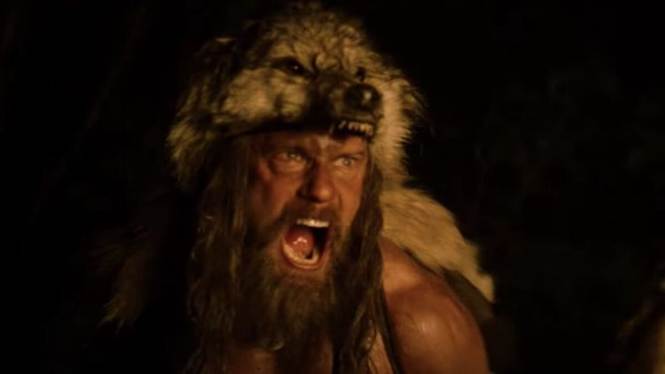
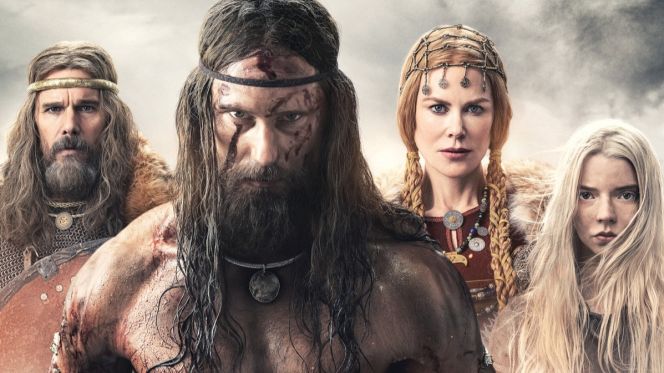
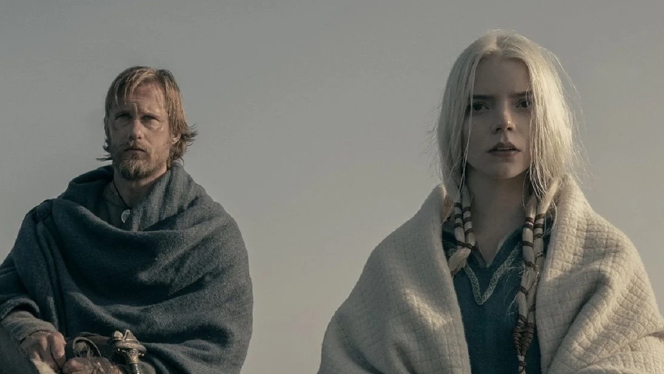
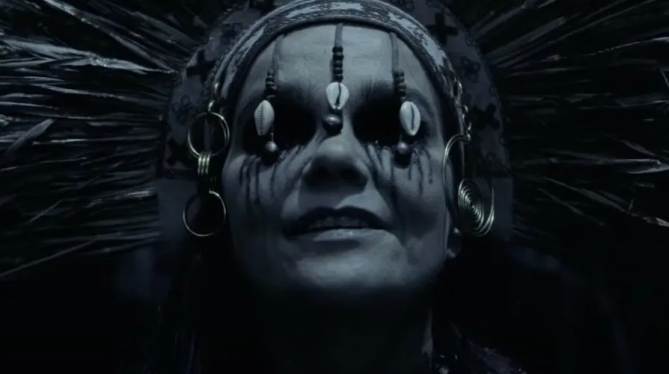
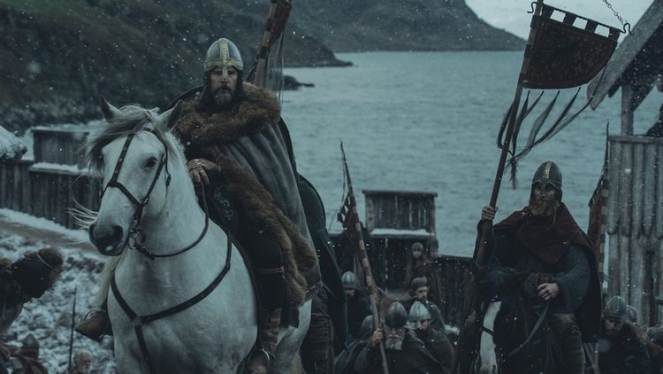

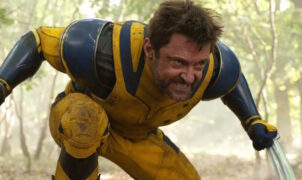
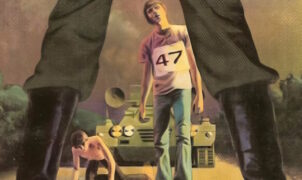

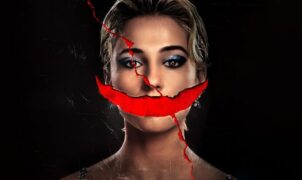

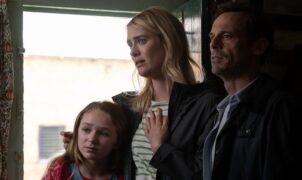
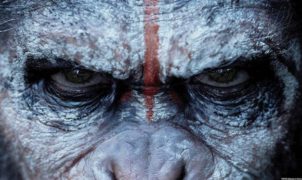
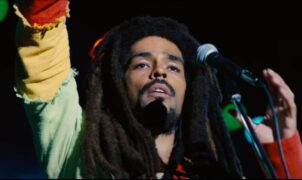
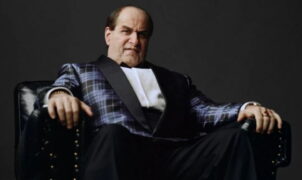
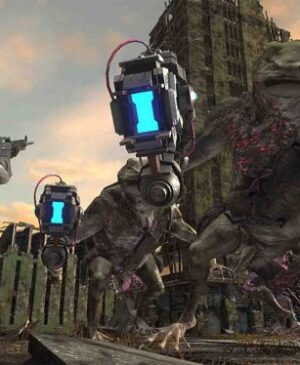
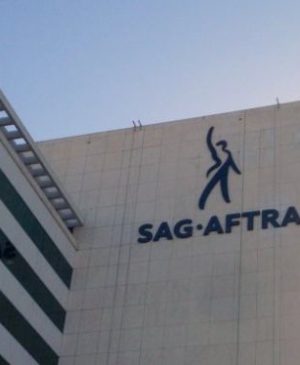

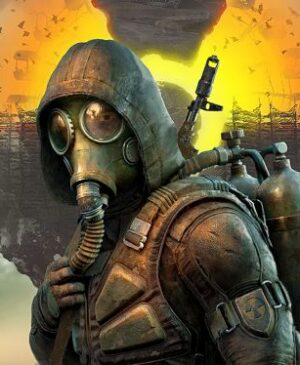
Leave a Reply